
Food | Place | Identity is a collection of photo-essays, personal writings, interviews and stories that explore the ins and outs of the food industry. Each piece in this collection explores the ways food impacts our lives beyond its ability to sustain life — making it a venue through which we define cultures, traditions, and a sense of identity.
“Calvados never changed because distillers never thought it needed to or that it could.” It is due to visionaries like Nicolas and his father, who have recognized the potential of Calvados, that this unique eau-de-vie has a bright future.
While most travellers look forward to the region’s wondrous landscape of dormant volcanoes, I was drawn by another attraction entirely. Cheese.
Have you ever encountered the feeling of being somewhere far away from your comfort zone, yet still felt very much at home? Three years after my winter visit to the Fogo Island Inn, the feeling of hospitality and warmth that greeted me still resonates pleasantly in my memory.
As hungry travellers journey beyond the chic metropolis of Paris and head south towards the eclectic terrain of central France, a family name seems to echo across the landscape.
I gazed up at the clear November sky, covered in mud up to my knees, as the sound of cool winds rummaged through the rows of dead corn husks. The air was cold and the light had softened as I sat there over several hours, waiting for a sign of life to cross our paths.
“The Universe is nothing without the things that live in it, and everything that lives, eats.” — Jean Anthelme Brillat-Savarin
There is no way forward without looking to the past. And although that is true for almost anything in life, I believe it’s actually even more crucial when it comes to food.
I wanted to be a rock star way before I wanted to be a cook. Even though being a rock star didn’t work out for me, I still have 13 guitars and 3 amps, and I got to travel the world.
Food is one of the greatest pleasures in life... think about, the enjoyment of food, in my opinion, is right up there with sex and the creation of life.
Food is an incredibly complicated topic, and sadly the solutions to the problems around food are not always realistic.
Food for me has always been very meaningful. When I was very young, I was influenced by Italian culture and food. My mom was a single mom, and by default, because I wasn’t in school yet, she would drop me off at my grandmother’s house, and pick me up after work.
One of the most important thing about eating and drinking is that it’s done with people. There’s community building involved.
Food is one of the greatest pleasures you can have, and it doesn’t have to be expensive to make that happen. Life is difficult, no doubt about it. But when you have a good meal or you make a good meal, it makes you happier.
I come from a large catholic family where food was super important. Growing up, we were always taught about waste management, which is a recurring theme that I teach everyone who comes in my shop.
When I moved up to Langdon Hall, I really had no idea what I was walking into. I was 16 at the time, and I thought I was going to walk in there, get a job in the kitchen and within about 3–4 years, I would be kitchen supervisor like at my previous job, running this place.
Growing up on a farm and knowing where my food came from I think is something that has stuck with me all my life.
One of the most amazing things about wine, like food, is that it’s about the people behind the scenes.
Nicolas: I come from the small Italian country side where food has a special importance. my grandpa was a farmer, my dad would make his own wine, and my uncle owned a butcher shop for 40 years. And that’s what I grew up around.
Food has always been how I show love! I suppose it was taught to me at a very young age from my grandmother and my mother.
Solely being a fish market demands a certain amount of specialized knowledge that goes along with dealing with fish. And with that comes the ability to educate those who come into our store.
Without knowing, my relationship with food has always been a part of helping people eat.
Our friend down the road, Neal. He was a great guy. He passed away earlier this year, and when the funeral was on, we ended up doing the food for them.
Food has always been an important part of my life for me and my whole family. I have spent my whole life being part of the farm and helping provide and sell milk, meat, fruits and veggies.
Food has always been really big in my life. Surprisingly I didn’t actually break into the industry until I was 24–25.
I received a message on Facebook on the third of January from an old student of mine from the Cordon Bleu, telling me that someone was looking for a Chef to open a Mexican restaurant in Toronto.
Food represents a lot about a person as a being. It’s kind of hard to put into words for me, but it’s a reflection of your taste, background, culture, really just who you are.
Thomas: For us it was exciting to bring something new to Toronto, that was really the incentive with this project.
My Grandmother, she was the real cook in my family. She was so nurturing with the food and she cared about it which is what made her food so amazing.
I don’t really feel like being a chef was something I chose, the career chose me. After my first kitchen job at 13 in the dish-pit, I was really drawn to the camaraderie of a kitchen team.
I was reading an article in a marketing magazine the other day about trying to figure out a way to market beef and tell people about it.
6 months into my relationship with Catherine (now my wife), I found myself on a plane from Heathrow to Clermont-Ferrand to meet the in-laws for the first time.
From the age of 15 until 23, I mainly lived in, what was at that time, West Germany. The Germans are famous for a few things like: beer, getting the silver medal in world wars, and of course sausages!
I was 15 at the time, and in a co-op program in my first professional kitchen at the Carlton Hotel. The chore at the time seemed straight forward. Wrong.
I must have been six or seven when I started to spend most of my summers with my grandparents. They lived in a small town in the centre of France called Varennes-sur-Allier, about 2 hours from Lyon.
It always happened on Thursdays or Fridays. My Mum would start to get her ingredients together, ready for baking on Saturday morning.
Polenta puppies have a complex story with me. I mean you look at it, it looks like a ball of.. well polenta. There’s a bunch of different ingredients but when it comes to the plate, the final dish, it’s just one thing.
Disséminées dans le décor tant verdoyant qu’aride de la chaîne des puys, quelques modestes parcelles de vignes sont posées sur le versant des montagnes, en symbiose avec leur environnement. Les rayons rasants du soleil matinal dévoilent des rangées parfaitement bordéliques, comme envahies par une biodiversité chatoyante. […]
Nous nous sommes trop éloignés de notre relation primaire à la nature. En tant que communauté, c’est seulement quand nous reviendrons au plus proche du processus de production de nos aliments que nous pourrons être en mesure de saisir et de respecter l'équilibre naturel.
"Le Calvados n’avait jamais changé car dans l’esprit même des producteurs, il n’avait pas lieu de changer” Mais c'est grâce à des visionnaires comme lui et son père, qui ont reconnu le potentiel de ce spiritueux, que cette eau-de-vie de pomme a aujourd’hui un bel avenir.
En quittant Paris, les voyageurs gourmands prennent la route du sud, en direction d’une province coincée entre l’Auvergne et le Beaujolais. L’écho d’un nom réputé commence à résonner au fil du paysage.




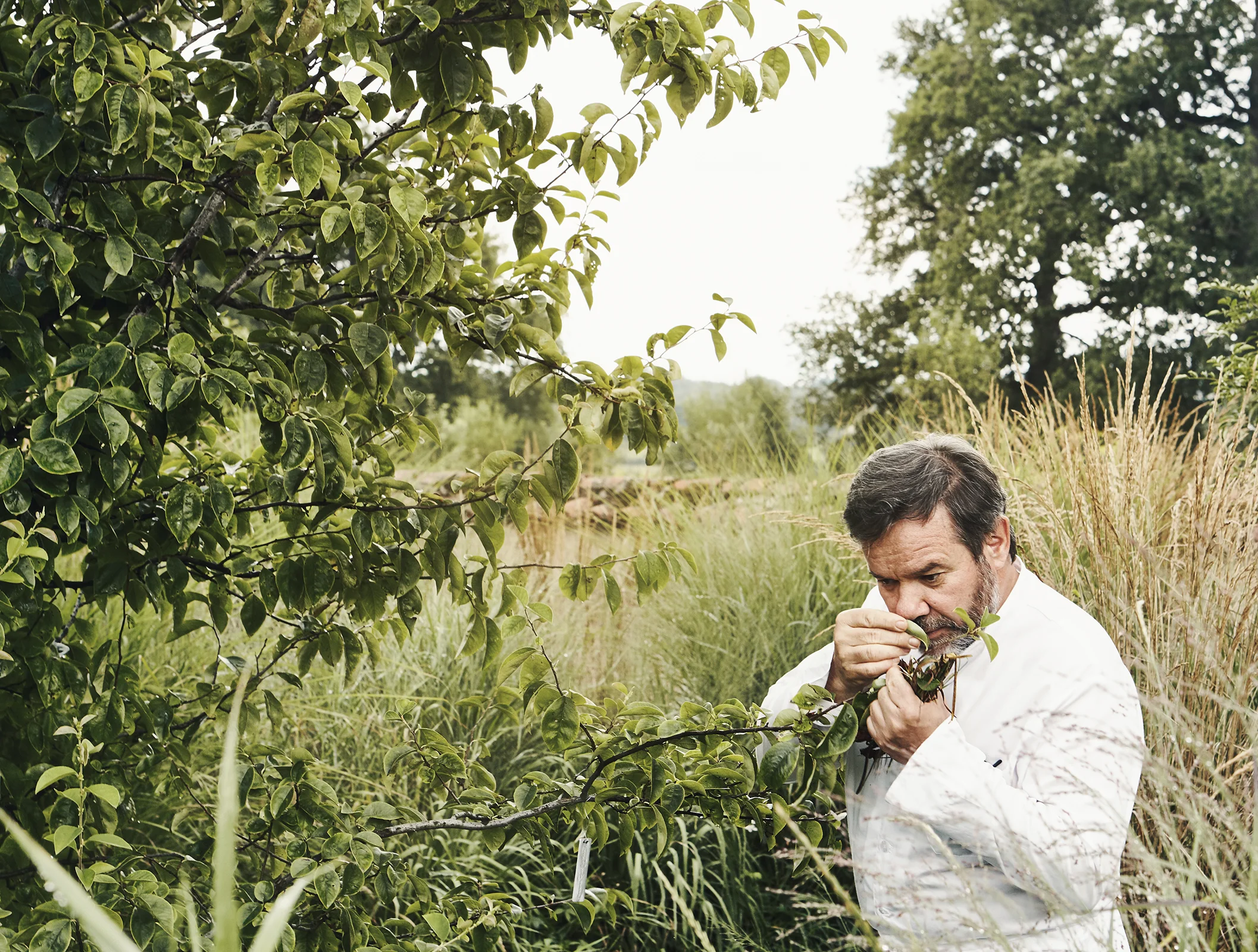

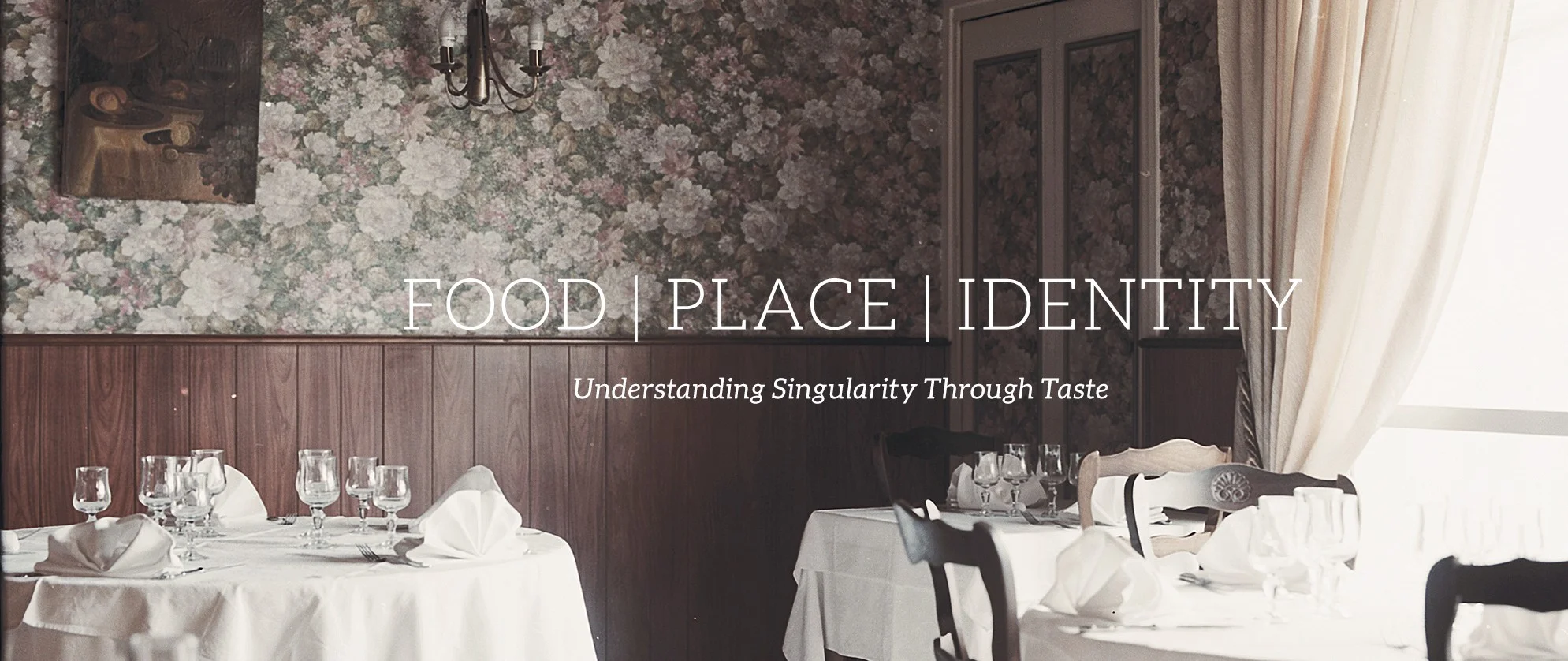



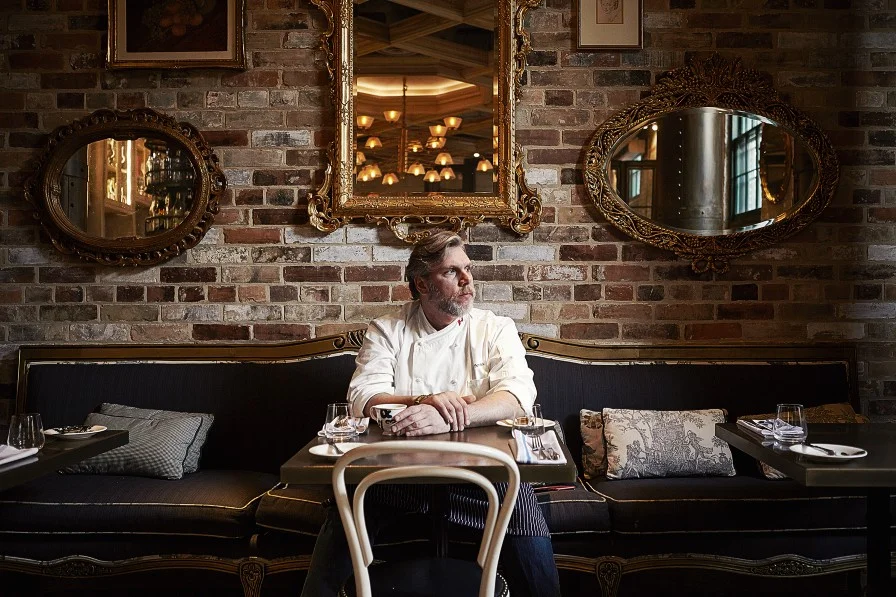
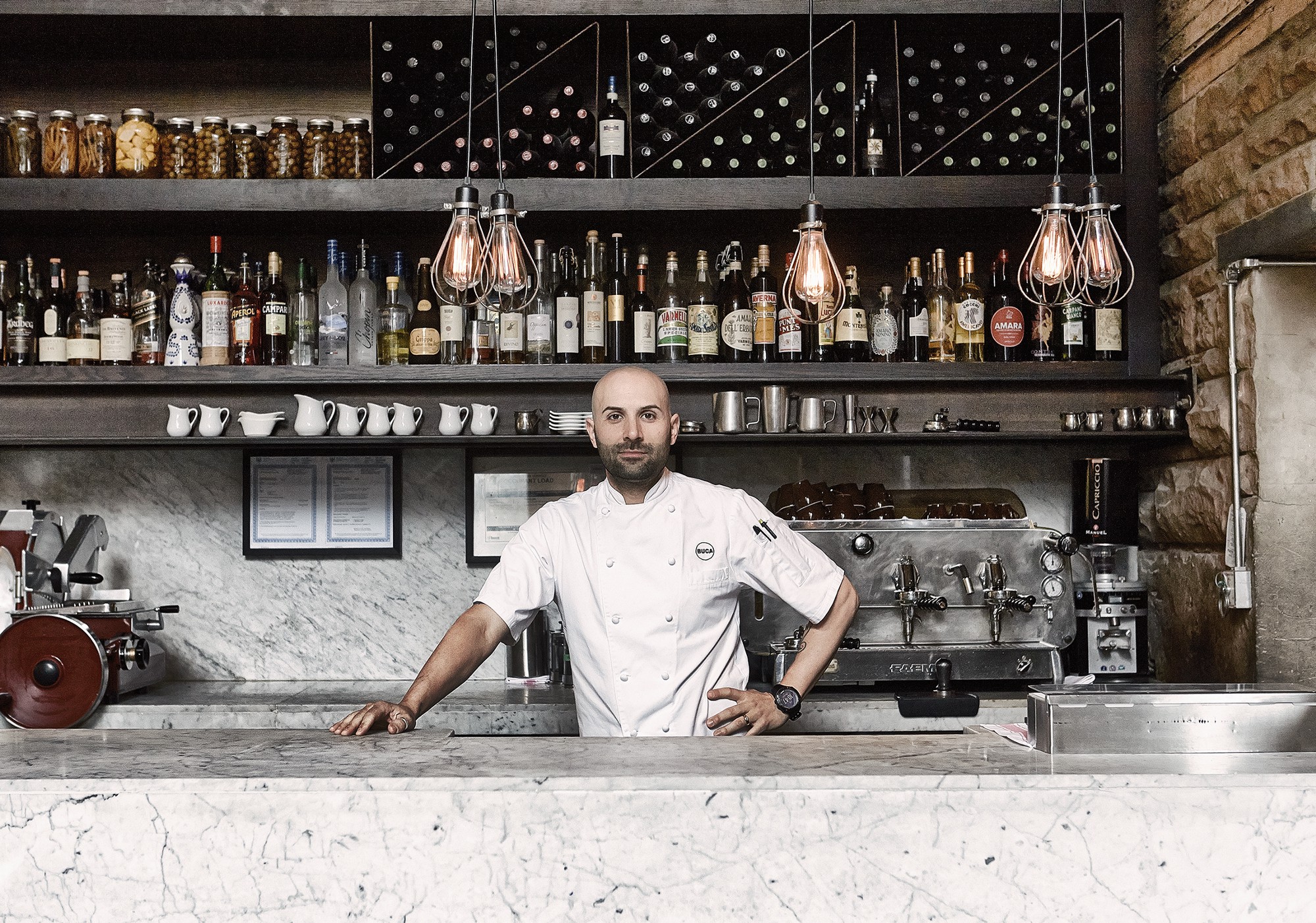
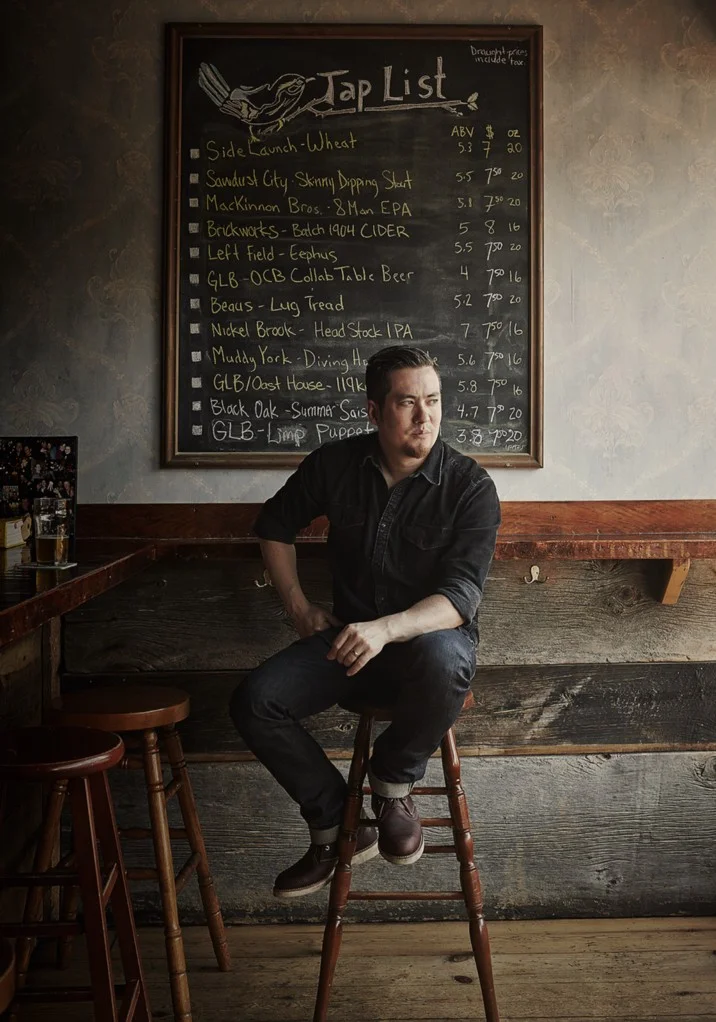



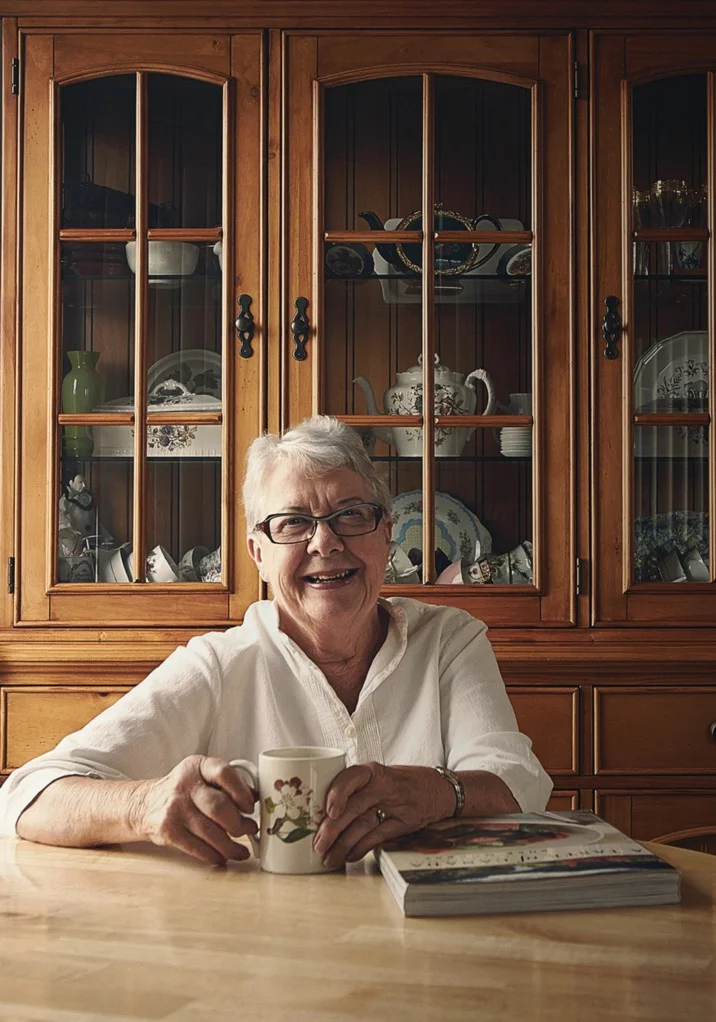
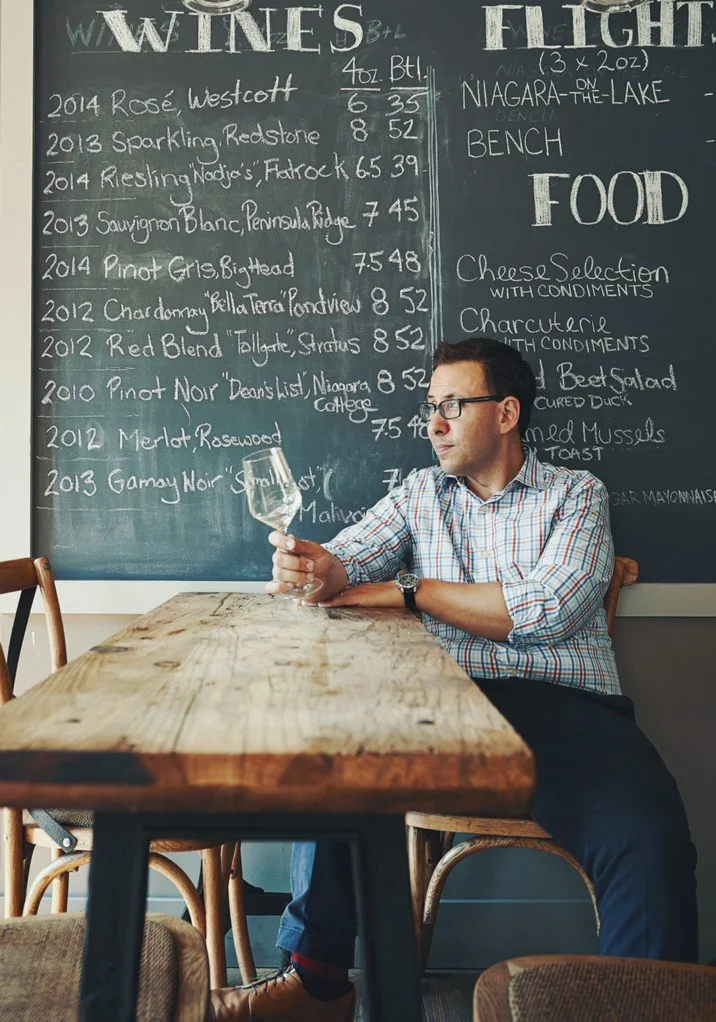

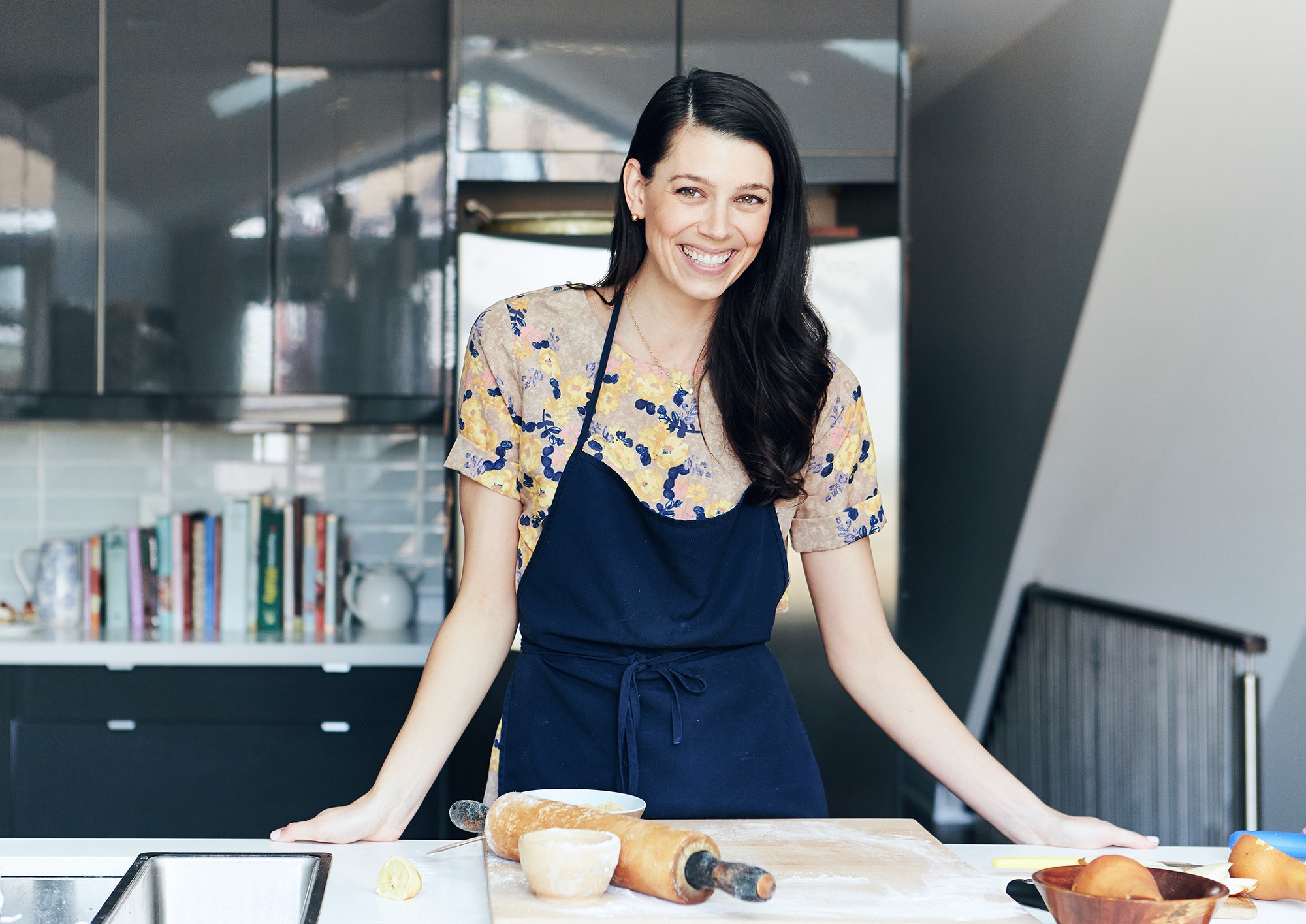
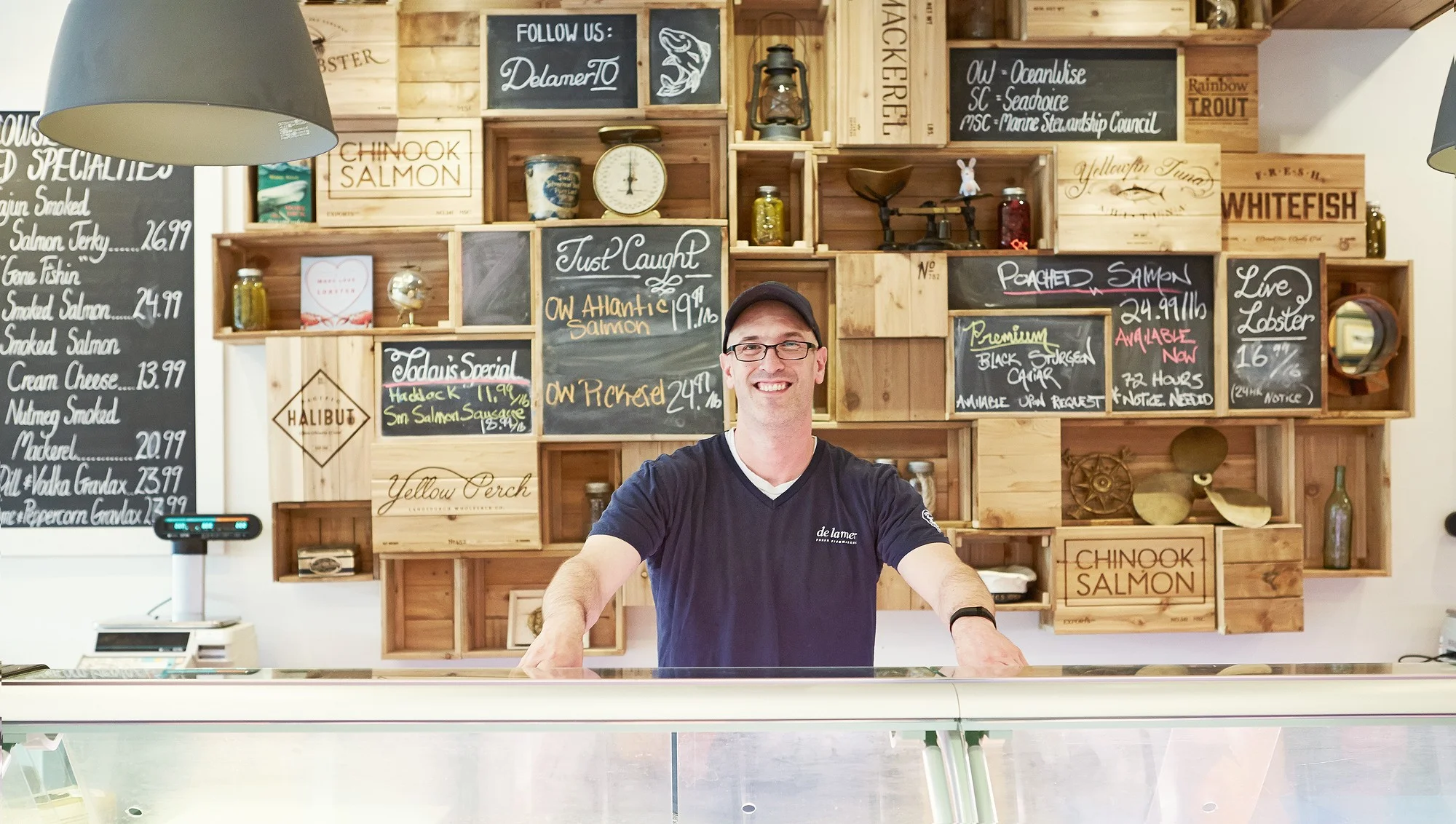
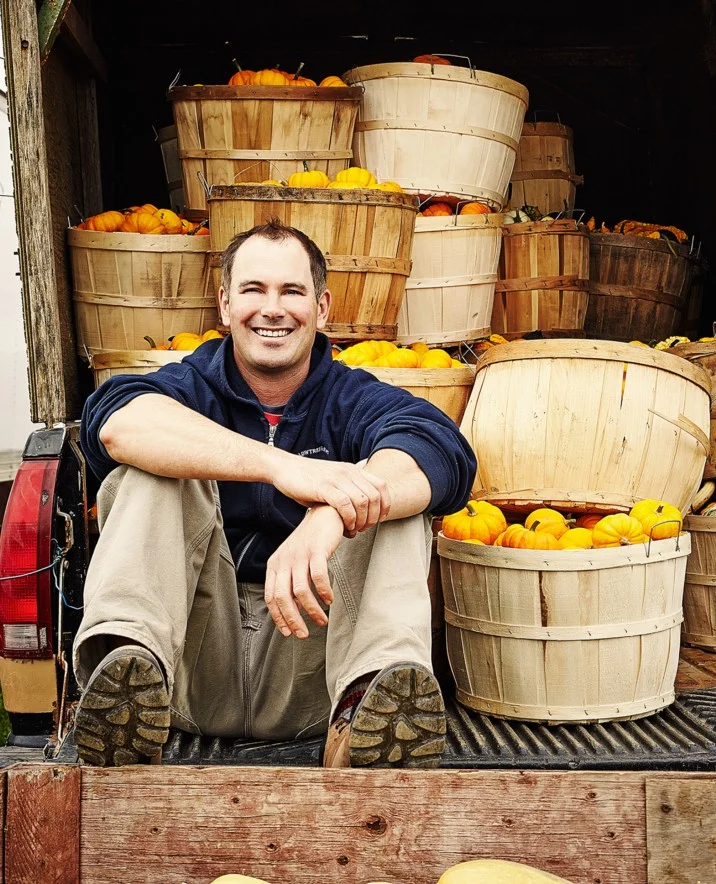
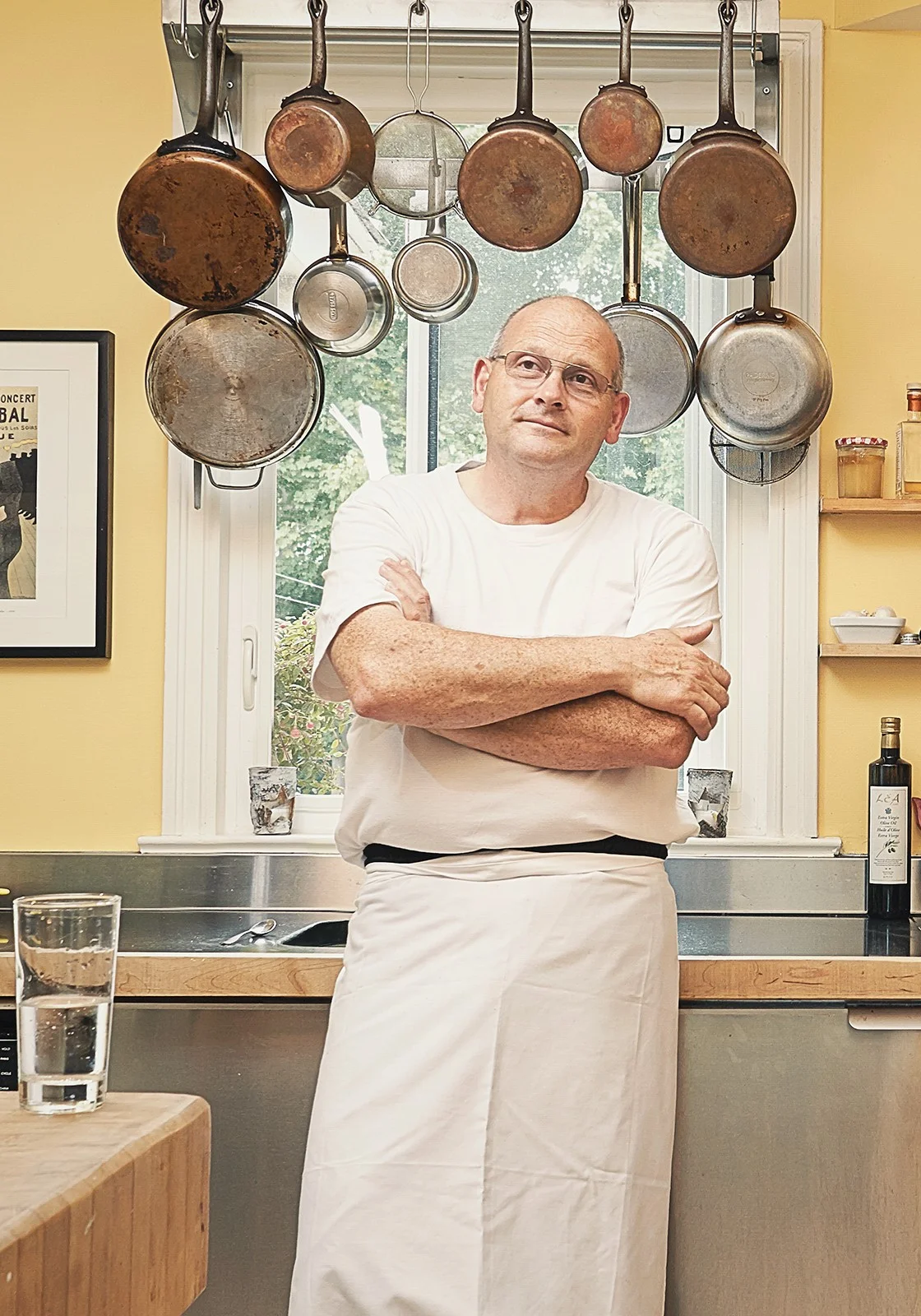
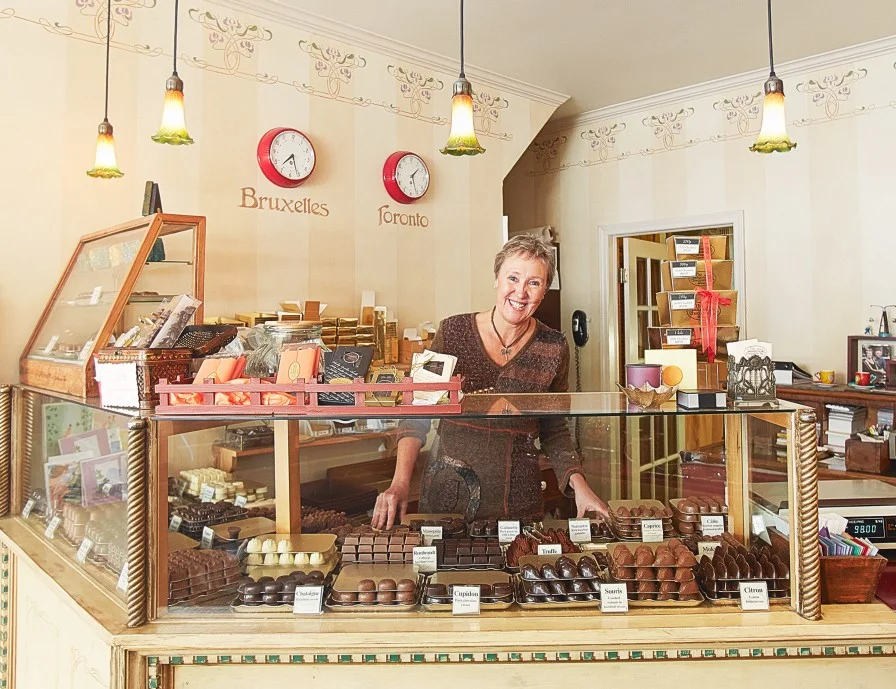

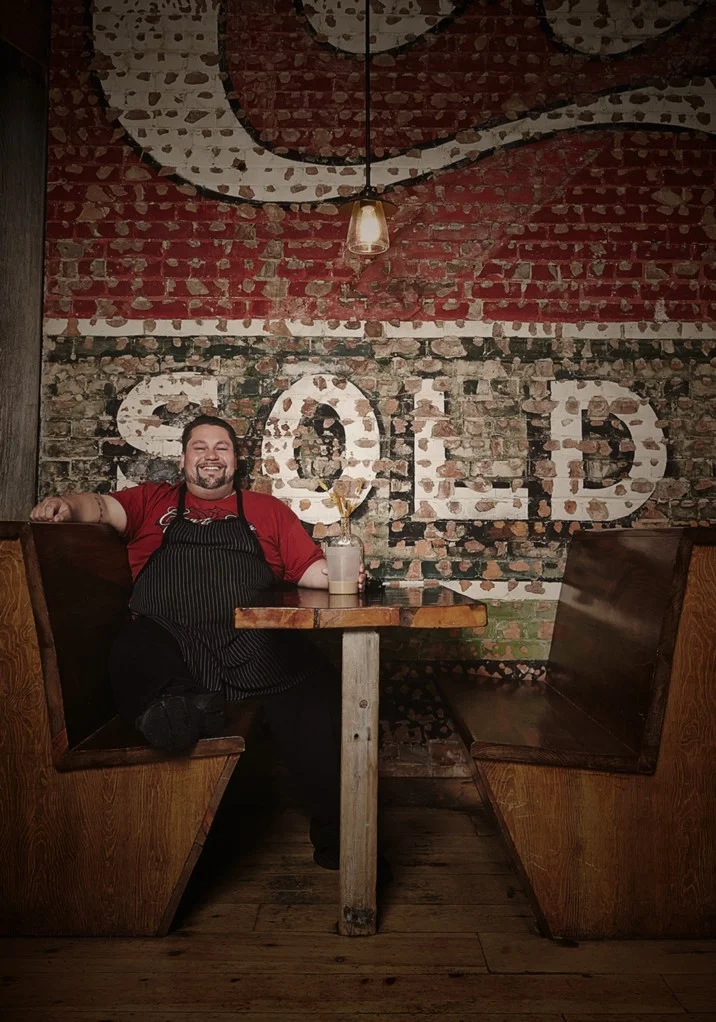
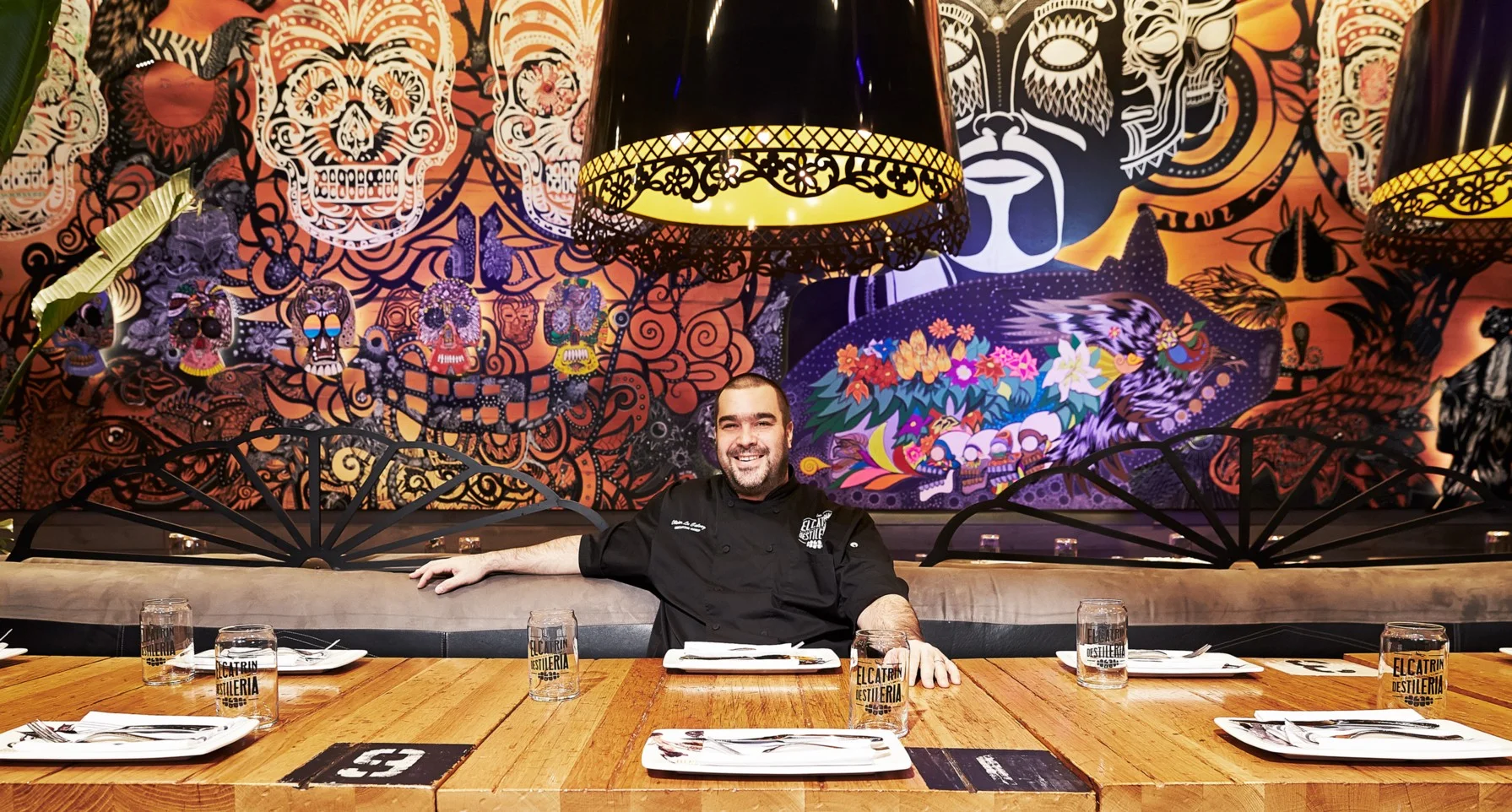



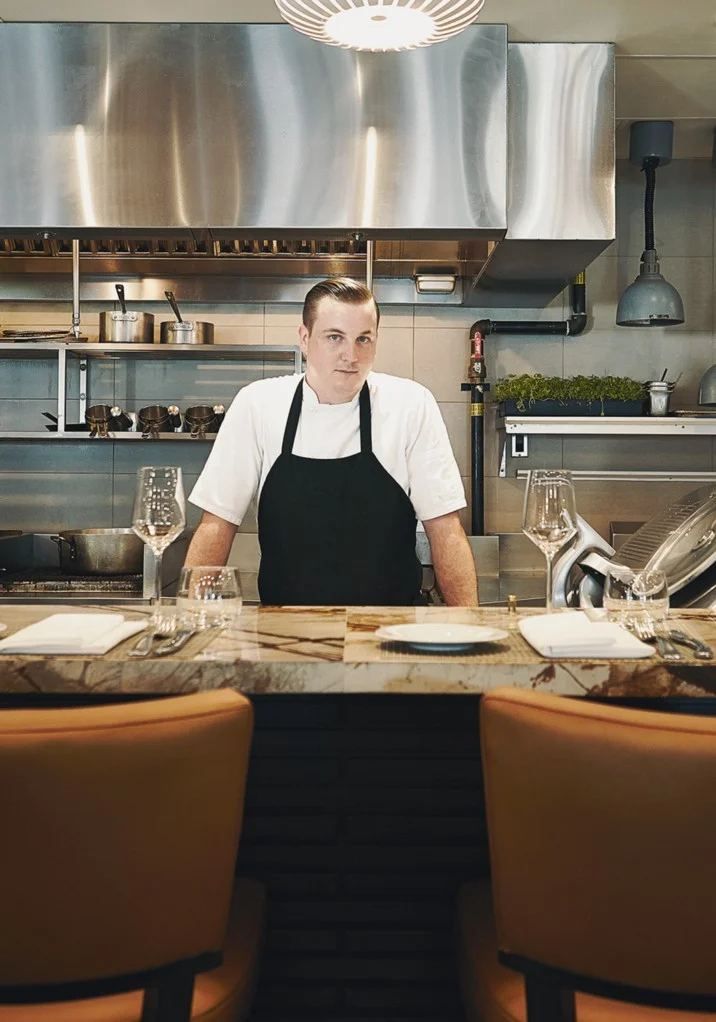

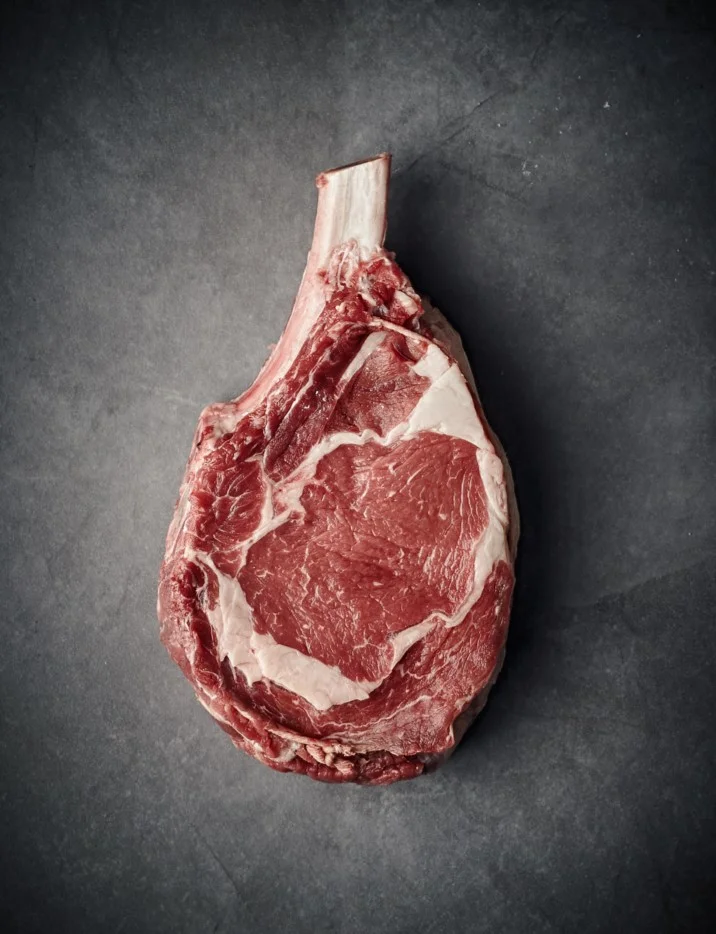
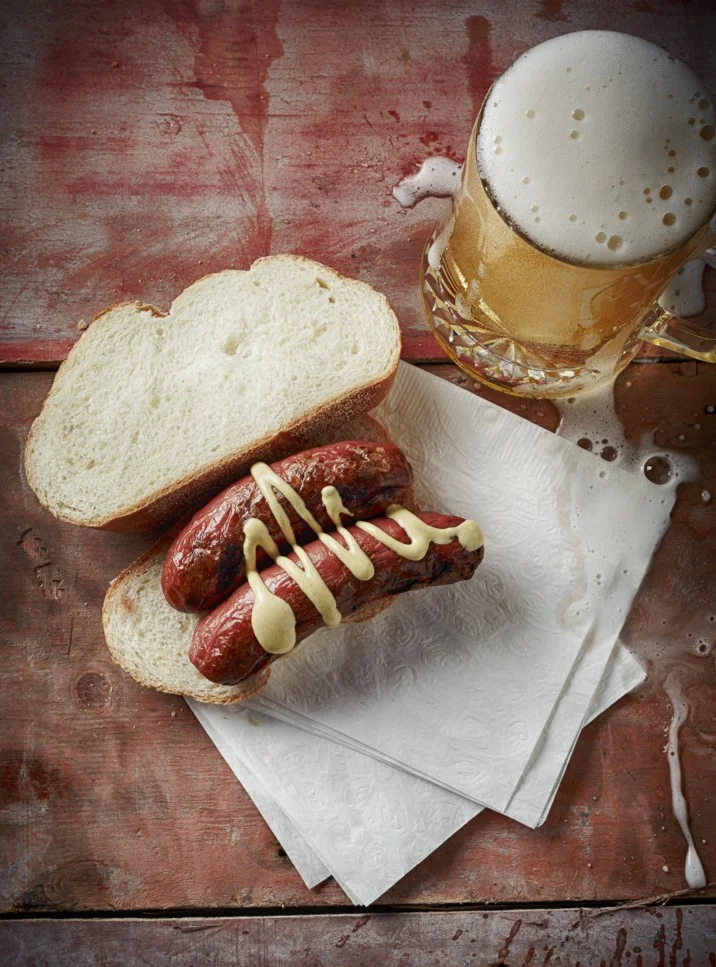

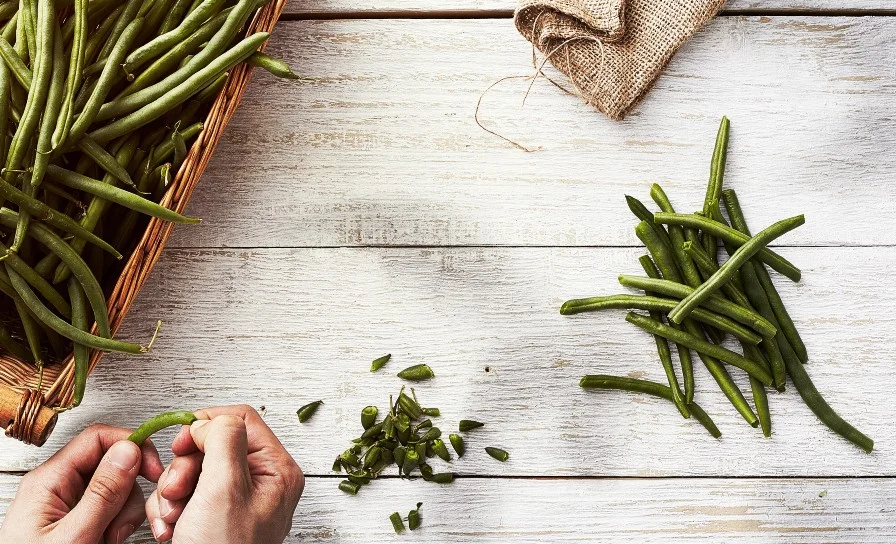
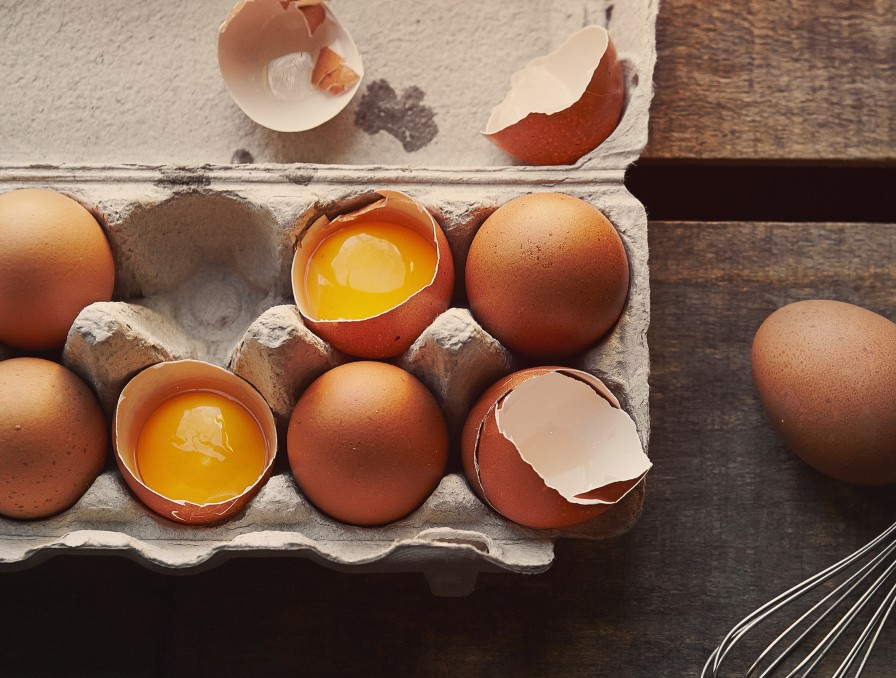
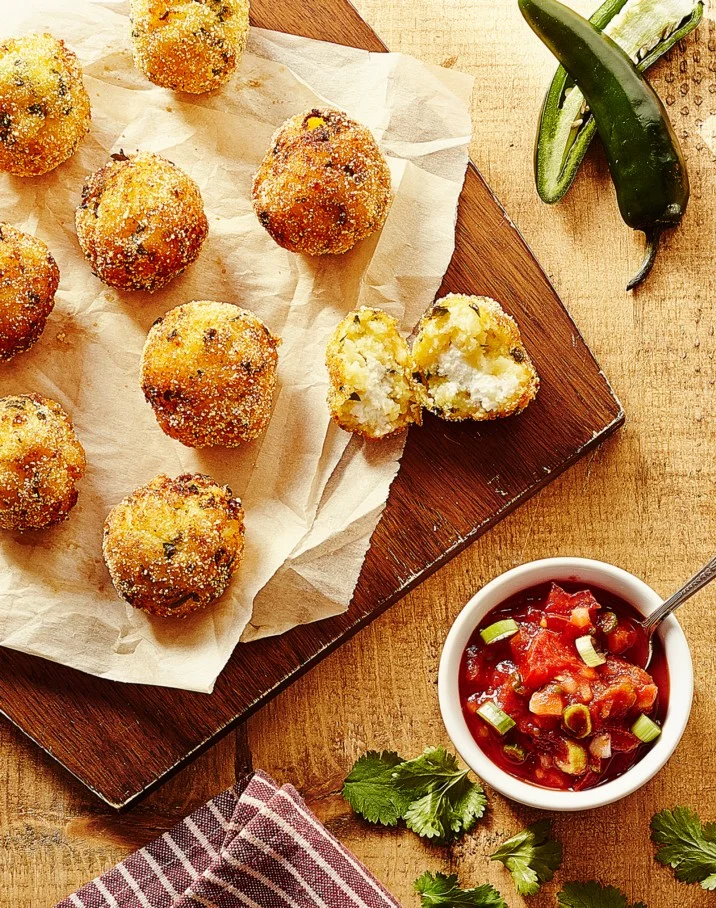


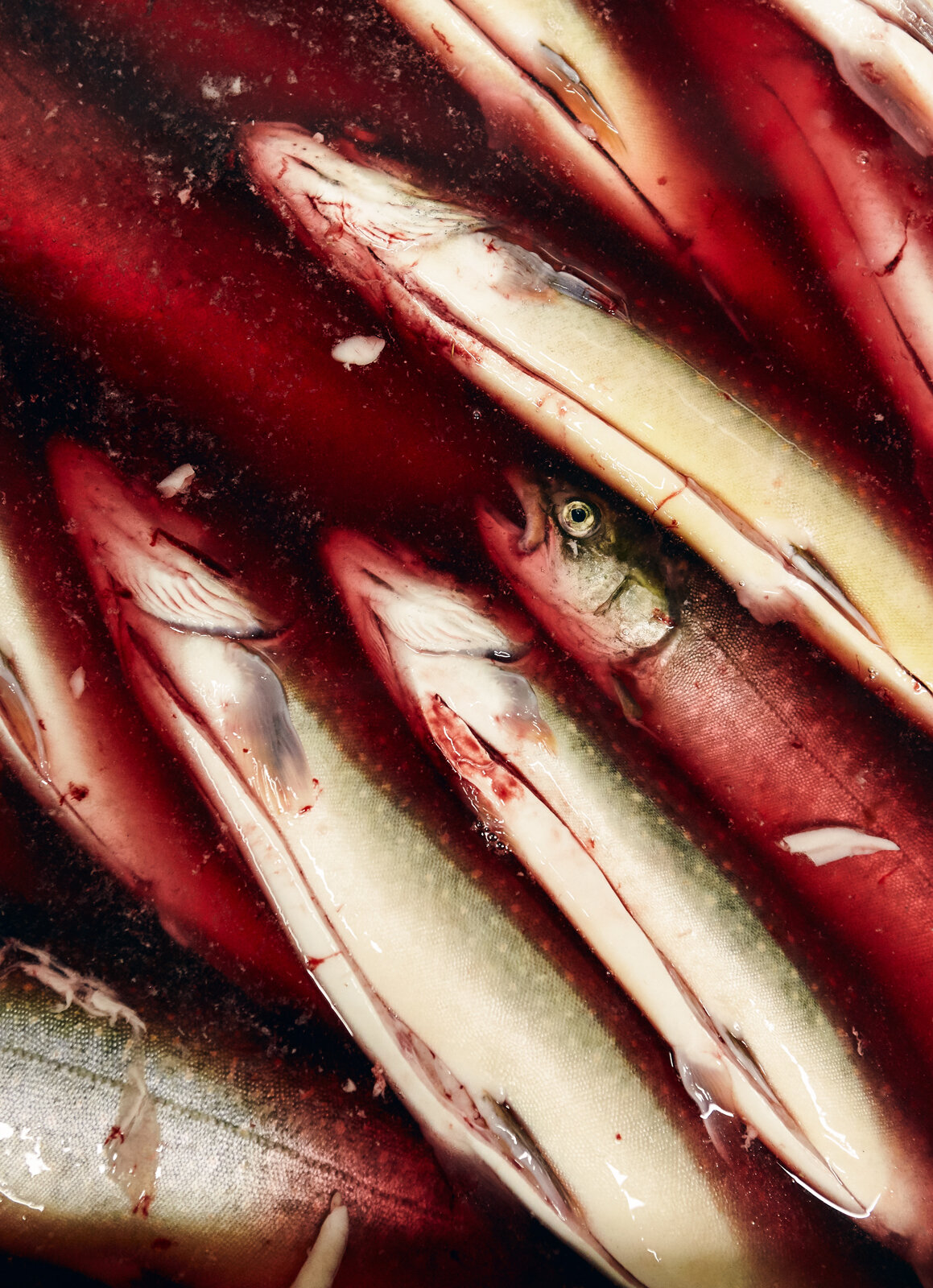
Continuing to find ourselves too far removed from our relationship with nature, should we be brought back into the production process of our foods?